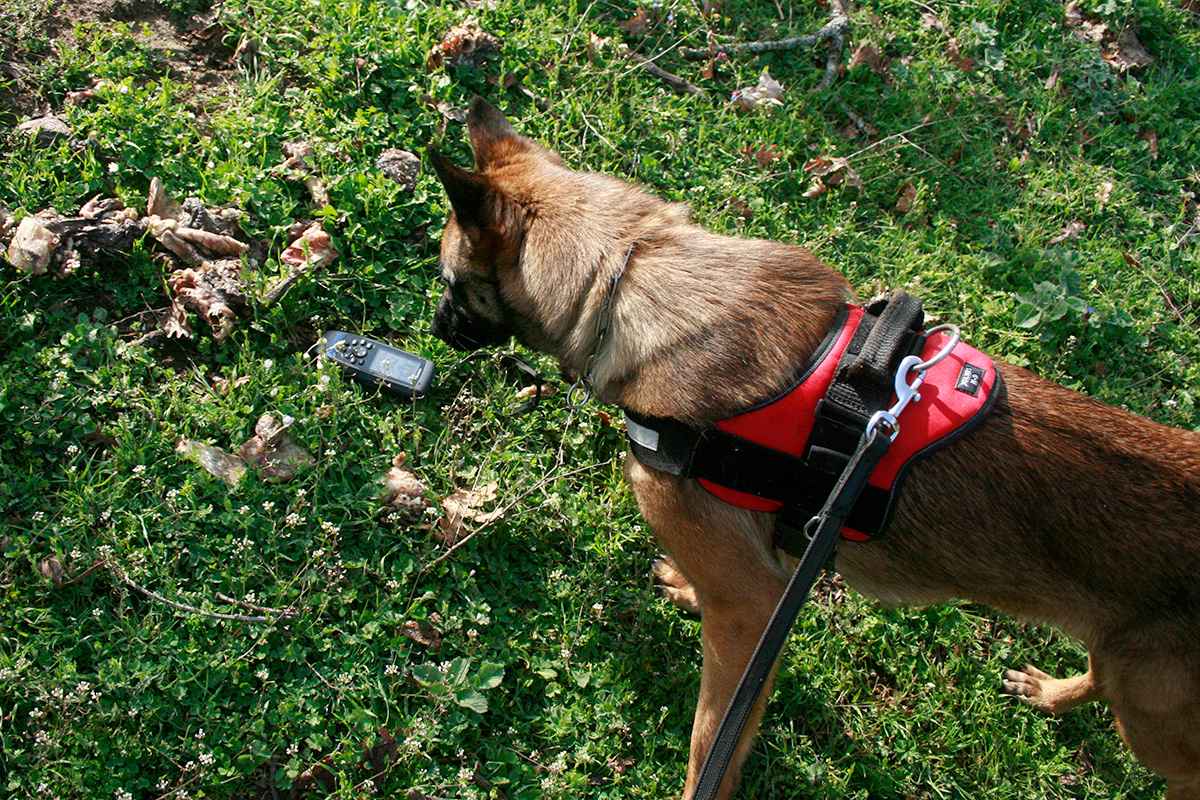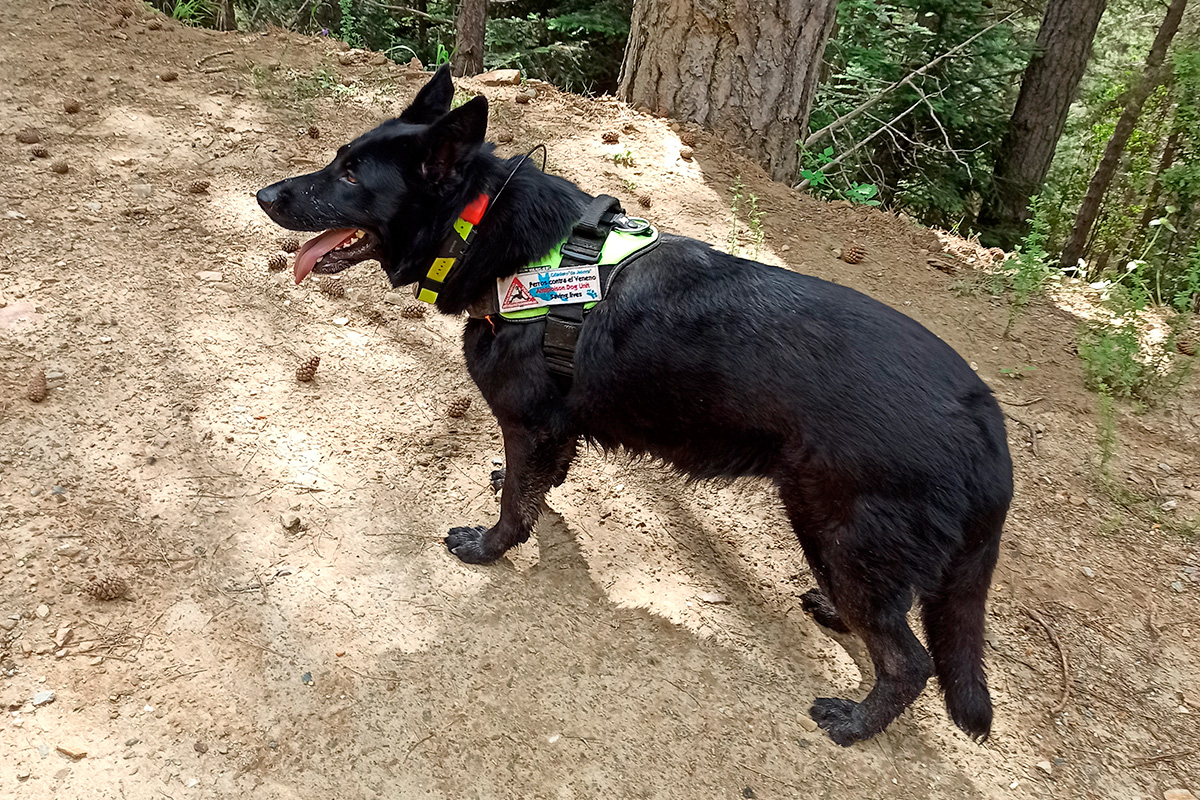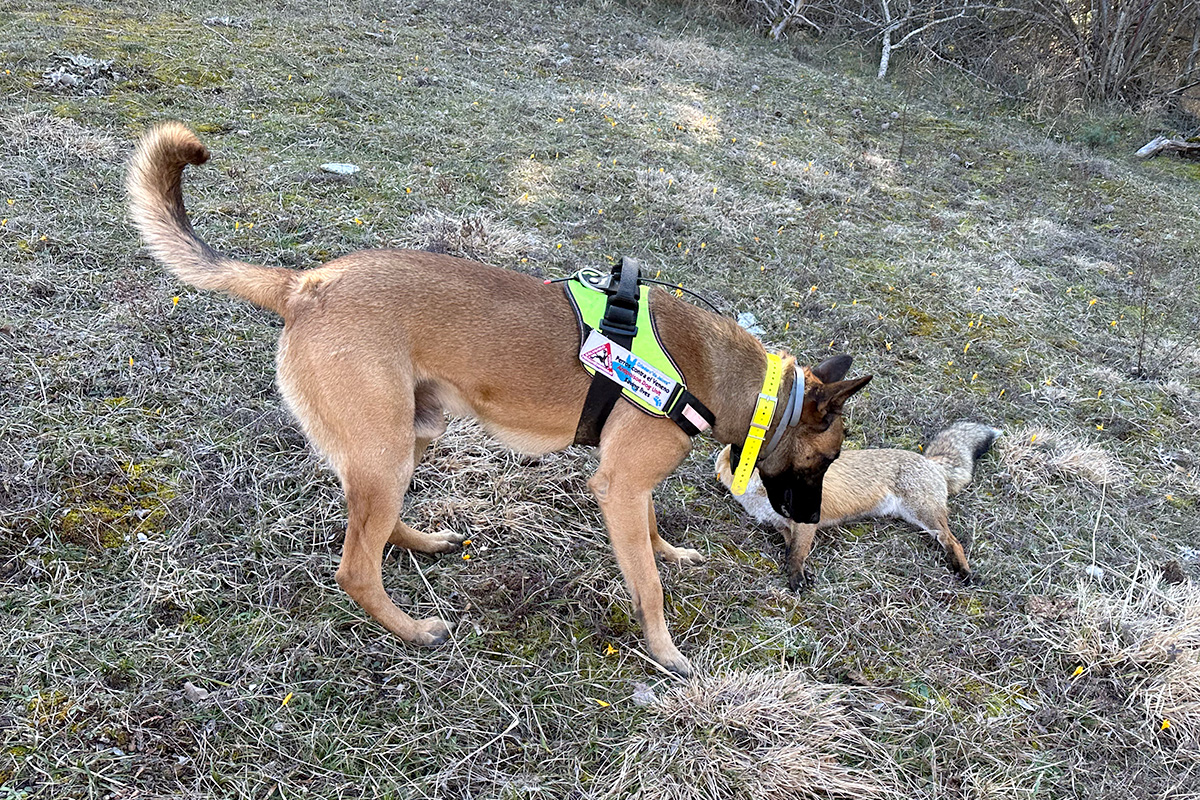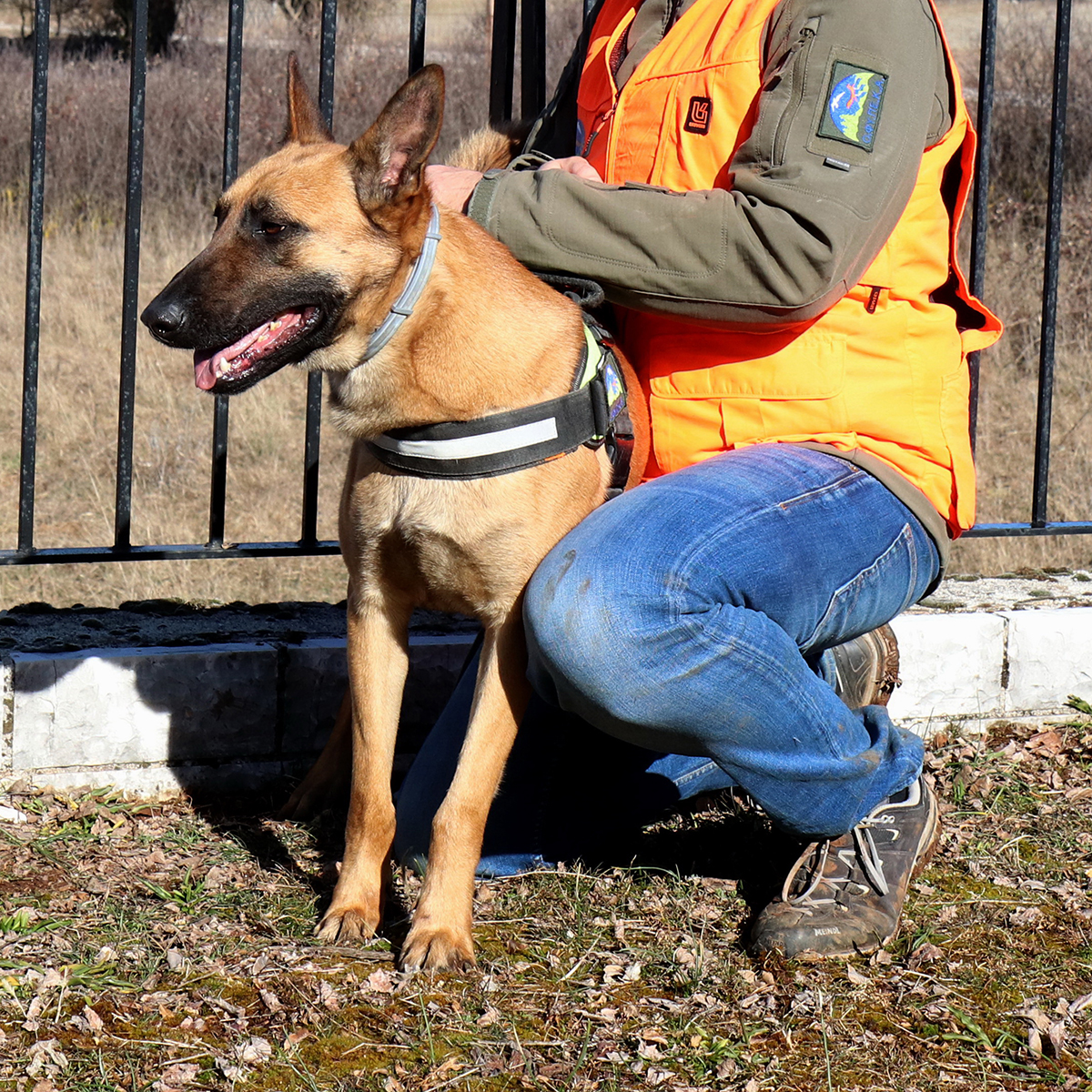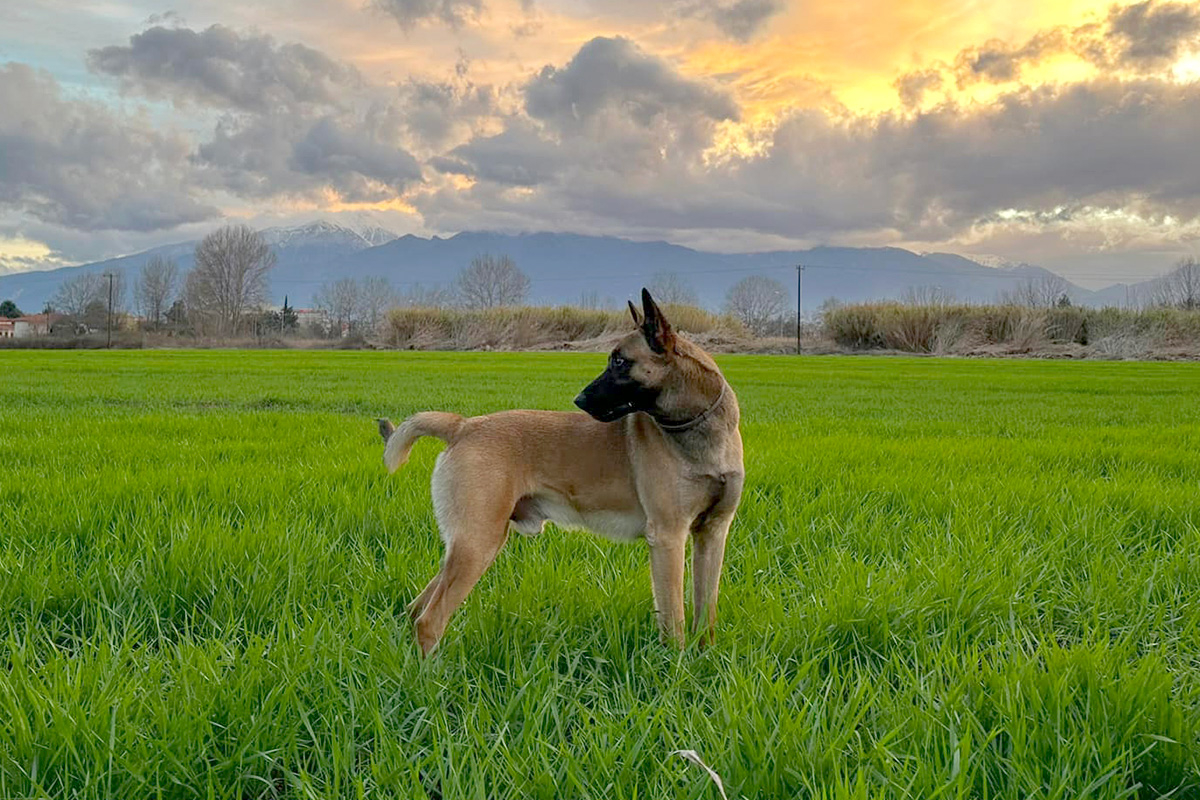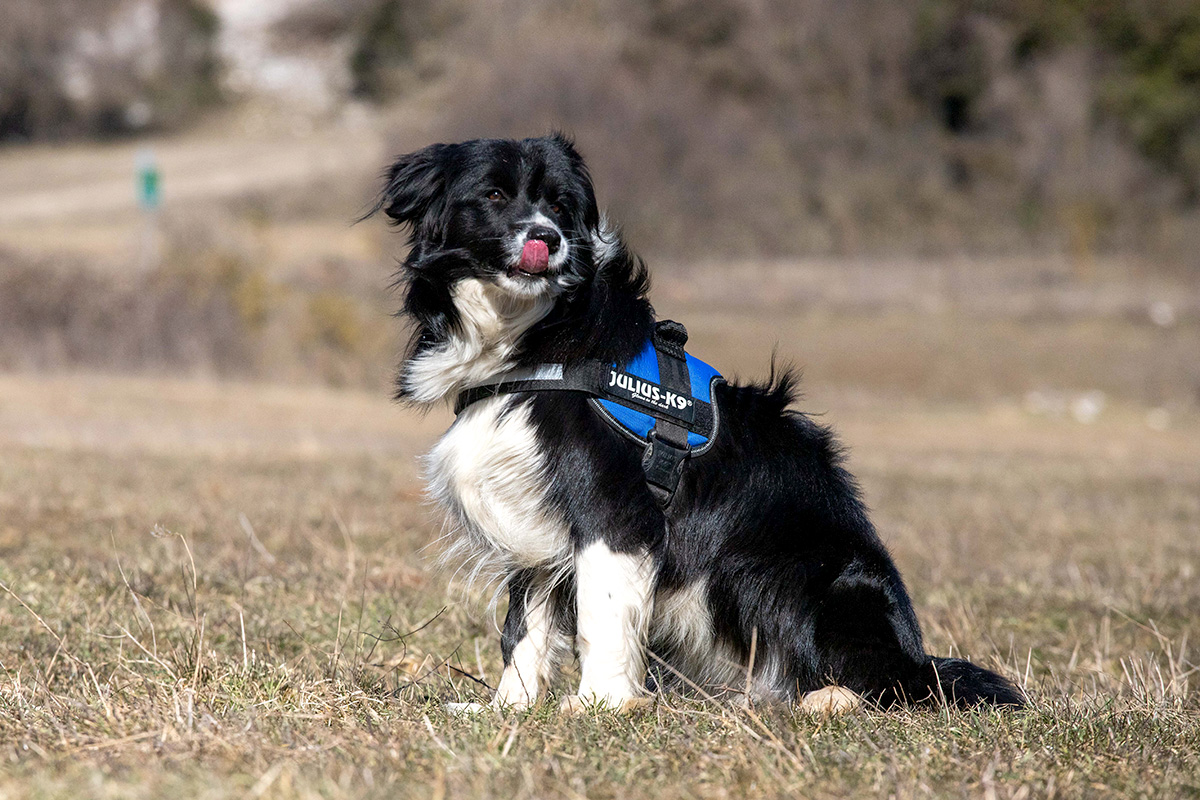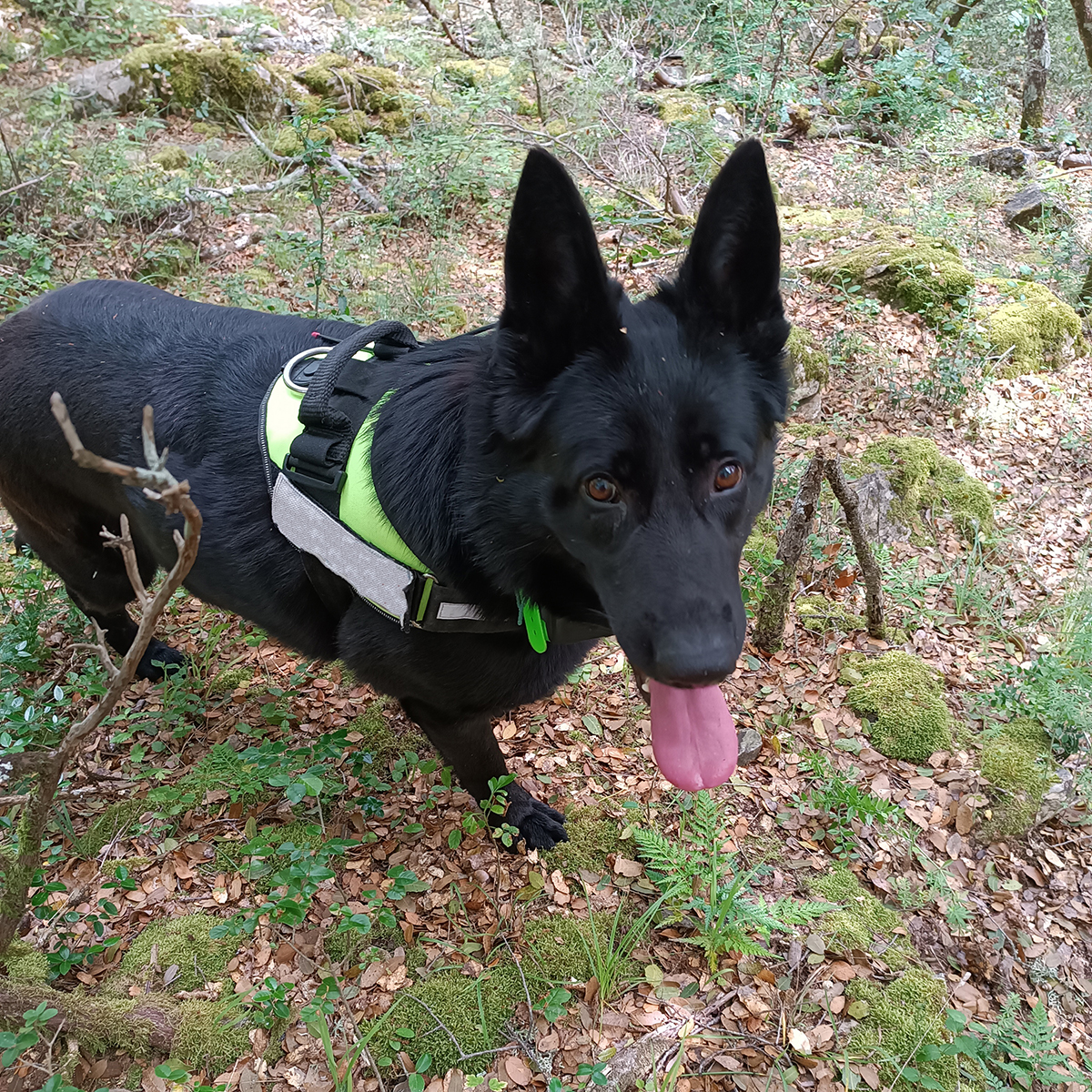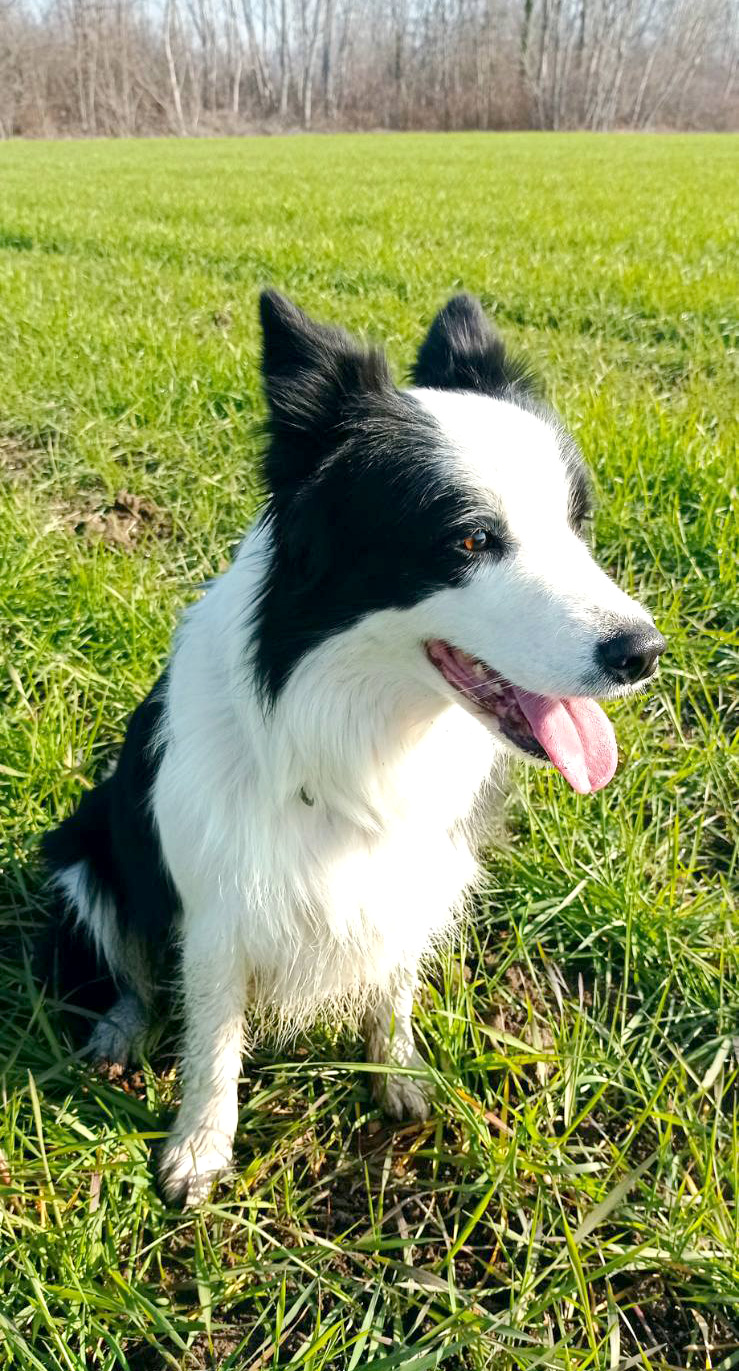In Greece, the use of specially trained dogs to detect poison baits started in 2014, as part of the LIFE+ EU funded project “The Return of the Neophron”. That year, two specially trained dogs from Spain were acquired to form part of the country’s first Anti-poison Dog Units. As soon as they arrived in Greece, the two dogs went immediately into action; the one as part of the anti-poison dog unit established by the Hellenic Ornithological Society / BirdLife Greece in Meteora and the other one as part of WWF Greece anti-poison dog unit in Dadia.
They were followed by two more units with specially trained dogs formed by the Natural History Museum of Crete in collaboration with the First Hunting Federation of Crete & Dodecanese, under the “Innovations Against the Illegal Use of Poison Baits” project. Three more dogs were acquired a few years later, as part of the LIFE Bonelli eastMed project.
In 2017, the Hellenic ORNITHOLOGICAL Society acquired the first dog for the detection of poison baits which was exclusively trained in Greece.


